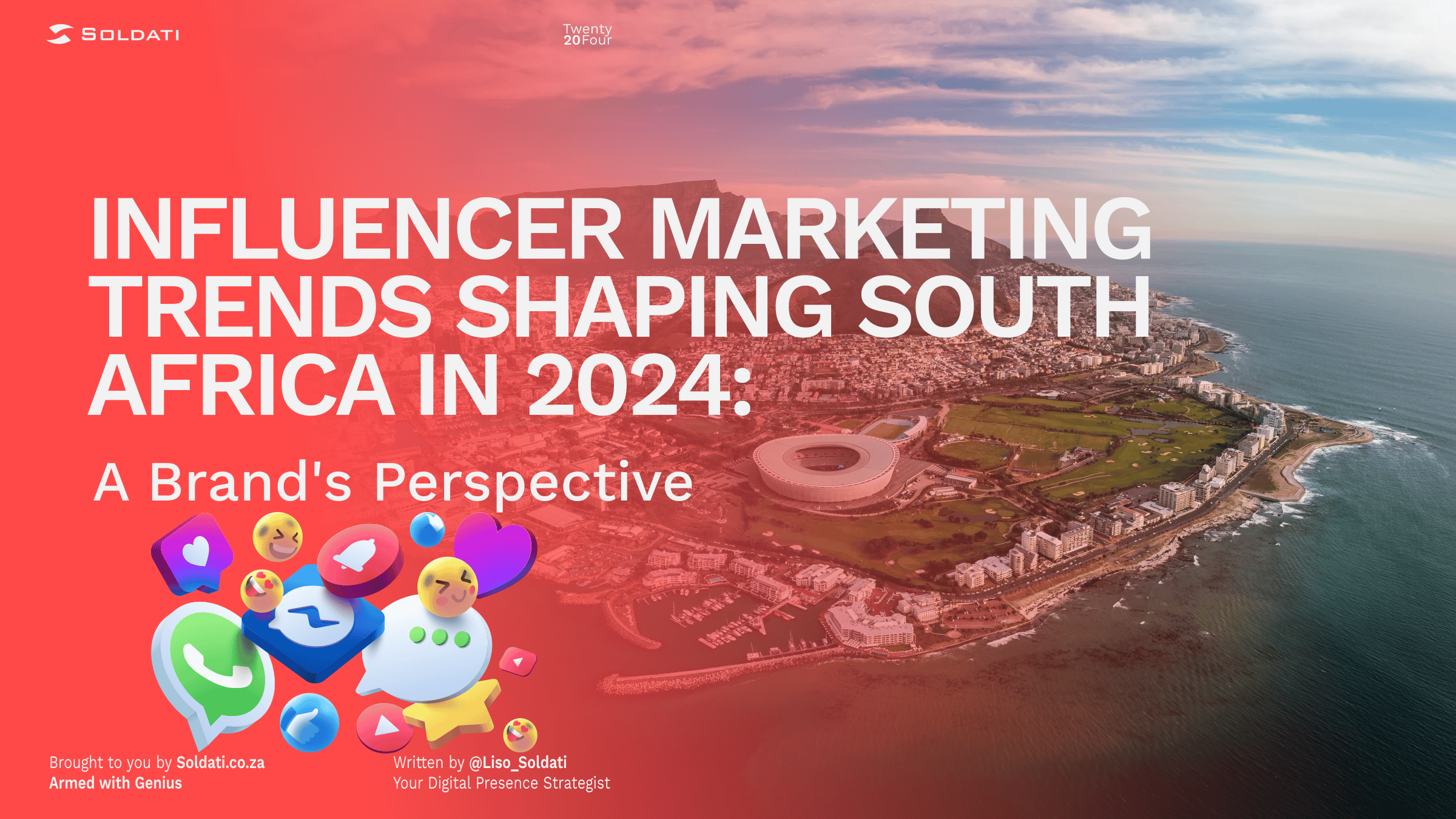Influencer Marketing Trends Shaping South Africa in 2024: A Brand's Perspective
• Date: Feb 19, 2024
• 3 min read time
• Author: Liso
What to expect this year as a brand looking to use social media influencers.

In the ever-evolving realm of influencer marketing, South African brands are preparing for transformative trends demanding a strategic shift in 2024. As audiences become more aware and sensitive to issues, brands must align their influencer strategies with the cultural landscape and consumer values prevalent in this country. Here are five influencer marketing trends that brands should be prepared to embrace in 2024
1. Authenticity as a Non-Negotiable:
In the ever-evolving realm of influencer marketing, South African brands are preparing for transformative trends demanding a strategic shift in 2024. As audiences become more aware and sensitive to issues, brands must align their influencer strategies with the cultural landscape and consumer values prevalent in this country. Here are five influencer marketing trends that brands should be prepared to embrace in 20242. Localized & Niche Campaigns:
While mega-influencers may have enormous appeal, In the focus will shift towards micro-influencers with niche audiences. These influencers, deeply connected to specific communities, offer a more engaged and loyal following. Brands are expected to ramp up their use of highly targeted, hyper-localised campaigns, collaborating with influencers who understand regional preferences.3. Video Content Continues to Rule:
The dominance of video content in the digital landscape is a trend that shows no signs of slowing down. Short-form videos, reels, and live streams have become the preferred mediums for influencer marketing. “Quality does not equal extravagance” will be a key part of brand briefs to influencers. Creator delivering relatable content with smart phones can often be more engaging than highly produced 4K videos Principle of story embodied in Relatability and authenticity often trump technical perfection in maintaining audience engagement.4. Fleeting Content for FOMO:
The fear of missing out (FOMO) continues to be a powerful motivator in influencer marketing. Brands are anticipated to leverage time-bound content, such as stories, to create time-sensitive and exclusive campaigns. By collaborating with influencers on content that generates urgency and excitement, brands can effectively engage their followers.5. Long-Term Collaborations:
A notable shift is being observed in the preference for long-term collaborations over one-off campaigns with various influencers. This shift is fueled by the authenticity and trust that develops over time when an influencer consistently endorses a brand. This leads to creating influencer adverts that feel more like a referral than an add.In conclusion, as influencer marketing continues to evolve in South Africa, brands that embrace these trends will be well-positioned to connect with their target audience authentically, contribute to sustainability goals, and navigate the nuanced cultural landscape of the country. Stay tuned for an exciting and transformative year in influencer marketing.
More Articles
5 Urgent Website Updates Every Business Needs in 2026
• Date: Jan 08, 2026
Free Tools, Professional Results: Create Pro-Grade Visuals on a Budget• 3 min read time
• Author: Liso
• Date: Mar 18, 2024
A look into Adobe Premiere Pro Alternatives – Resolve • 3 min read time
• Author: Liso
• Date: Mar 11, 2024
When options are limited, unleashing creativity & innovation is our only choice.• 4 min read time
• Author: Lungelo
• Date: March 5, 2024
Audio vs Video: Navigating Marketing Mediums in SA• 4 min read time
• Author: Liso
• Date: Feb 26, 2024
Is Social Media The New Website?• 2 min read time
• Author: Lungelo
• Date: Jun 27, 2023
How businesses are using WhatsApp to open a bigger door into the market.• 3 min read time
• Author: Liso
• Date: Jun 15, 2023
The Secrete to creating memorable brands• 3 min read time
• Author: Liso
• Date: Mar 29, 2023
• 3 min read time
• Author: Lulama
